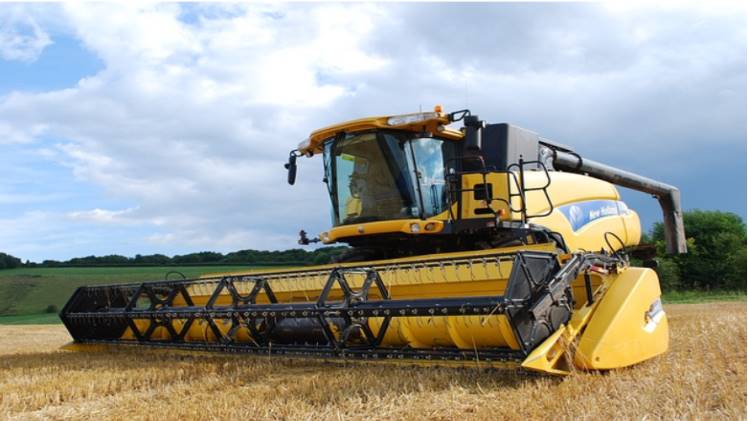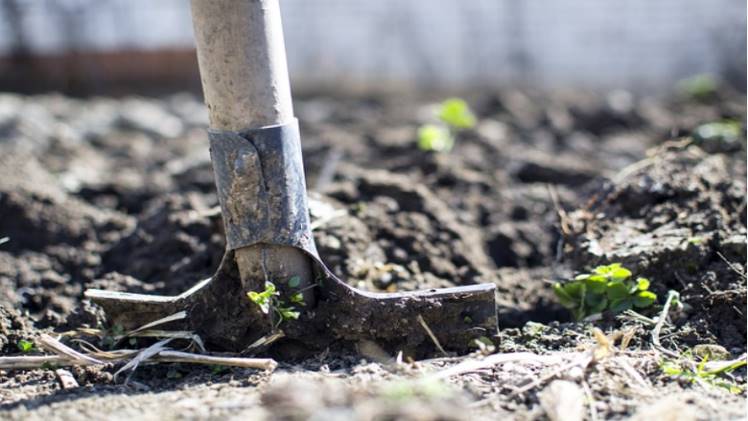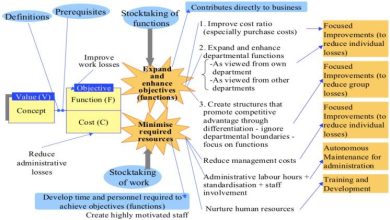8 Entry-Level Agricultural Jobs That Can Lead to Success

Introduction
Are you interested in working with animals or maintaining natural resources and the environment? If so, an entry-level agricultural job might be an excellent choice for you! From groundskeepers to livestock managers, there are plenty of rewarding career opportunities within agriculture that can lead to success. In this blog post, we’ll explore some lesser-known entry-level agricultural industry jobs here, what they entail, how much money you can make in these occupations, and more. So if you’re looking for a meaningful career pathway within the growing field of agricultural sciences—keep reading!
Entry-Level Agricultural Jobs
1. Crops Farmworker
Being a crops farmworker can be a highly rewarding entry-level position in the agricultural sector, with opportunities for growth and advancement. This role requires physical stamina, as it involves working outside, often in adverse weather conditions, to plant, cultivate, and harvest crops such as fruits, vegetables, grains or nuts. The job typically doesn’t require any formal education beyond high school, but on-the-job training provided by experienced co-workers or supervisors is essential. With hard work and dedication to quality production standards, a crops farmworker can advance to roles such as farming supervisor or farm manager. Success in this field also depends on keeping up with technological advancements changing how farmers grow their crops. Staying informed about emerging trends allows potential advancement in career opportunities, ultimately leading to industry success.
2. Animal Caretaker
Animal caretaking is a vital entry-level agricultural job that requires dedication, hard work, and attention to detail. Individuals who take on this role are responsible for the daily care of livestock, ensuring the animals’ well-being and welfare. According to the Bureau of Labor Statistics, employment opportunities in animal care and services are expected to grow by 22% by 2029, indicating that this field has great potential for career growth. Those working as animal caretakers may also have the opportunity to advance their careers through on-the-job training or pursuing further education in veterinary studies or related fields. They may eventually move into roles such as livestock and farm managers, or even farm owners themselves. Successful animal caretakers possess strong communication skills, patience, adaptability, and a passion for working with animals – qualities that can lead to a fulfilling and lucrative career in agriculture.
3. Greenhouse Worker
Greenhouse worker is an entry-level agricultural job that can lead to success, especially for those who have a passion for plants, food supply and agriculture. In this role, workers perform various tasks such as planting, watering, pruning, and harvesting crops in a controlled environment. Workers must have strong communication and organizational skills to coordinate with other team members and ensure the plants receive optimal care. Understanding climate control systems and pest management is essential to maintain plant health. With experience gained in this position and professional training or education in horticulture or crop production, workers can advance to roles such as greenhouse managers or even start their own greenhouse businesses. A career path as a greenhouse worker offers growth opportunities while contributing to the important food production industry.
4. Poultry Technician
The poultry industry continues to grow and is an essential part of the agricultural sector. As such, entry-level agricultural jobs in poultry farming have risen in demand. A poultry technician is one such job that can lead to success. These technicians are responsible for caring for and maintaining broilers, breeders, or layers within a farm setting. Their duties include hatching, record-keeping, monitoring feeds and water systems, administering medication as directed by veterinarians, and food scientists performing routine checkups on animals, and maintaining cleanliness in all farm areas. A poultry technician may also assist with grading and packaging eggs for sale. This role requires excellent attention to detail as technicians ensure compliance with regulations and protocols related to animal welfare standards and food safety guidelines.
As a strong foundation in poultry technology is vital for career advancement in this field, starting as a poultry technician provides valuable experience through hands-on learning opportunities under experienced professionals. Developing technical skills relevant to specialized equipment operation or through further education can also advance one’s career prospects over time. Ultimately, this entry-level job can lead to successful leadership roles within the industry if pursued with dedication and skilful craftsmanship over time.
5. Horticulture Specialist
Horticulture specialists specialize in cultivating, propagating, and managing plants. Successful entry-level agricultural jobs in horticulture can lead to a rewarding career for individuals interested in plants. Typically, horticulture specialists require a degree in agriculture or related fields. They may work at nurseries, plant research facilities, and botanical gardens, guiding growing techniques and overseeing cultivation operations. The job includes maintaining plant health by identifying diseases and adequately preparing the soil. Horticulture specialists might also conduct experiments to develop new strains of plants that have increased resistance to pests, more robust growth rates or better flower blooms. The successful candidate should know plant biology and have adequate practical experience working with different types of equipment used in horticultural technology and best practices within the industry for managing pests effectively. This field offers a path towards management roles within organizations specialising in these areas upon accumulating experience.
6. Irrigation Supervisor
There is more than meets the eye when it comes to being an irrigation supervisor. There are specific skills that many irrigation supervisors have to accomplish their responsibilities. Irrigation managers oversee the use of agricultural systems and water resources to maintain healthy soil and crops. They prepare water budgets, create irrigation schedules, measure water usage and monitor plant health. Managers also develop a maintenance schedule for the irrigation system and work closely with the farm manager and maintenance personnel to implement the schedule. As an irrigation supervisor, you will manage farm and field water supply and distribution systems.
You must have a solid understanding of irrigation engineering, soil science, agricultural practices, and equipment operation. A background in agriculture, agricultural engineering, or a related field is essential for this position. This job requires excellent organizational skills, the ability to manage a team effectively, strong communication skills, and critical thinking abilities. With experience and expertise in irrigation management, one can become very successful within the agricultural industry as an irrigation engineer or consultant. Promotion opportunities are also available by eventually moving up to farm management roles.
7. Agricultural Mechanic
This position requires individuals to have a strong understanding of mechanical systems and engines, as they will be responsible for repairing and maintaining various types of various farm machinery and equipment. Agricultural mechanics are typically hired by farms, agriculture machinery dealerships, or repair shops and can obtain experience through on-the-job training programs or vocational schools. Those who excel in this role may eventually move into higher-level positions such as service manager or technician supervisor. The demand for skilled agricultural mechanics continues to grow with advances in technology and automation within the industry, making this an excellent choice for those seeking a stable career path in agriculture.
8. Sales Representative
For individuals interested in a career in agriculture, becoming a sales representative is an entry-level job that can lead to great success. Sales representatives are crucial to the industry, as they promote and sell agricultural products such as seeds, fertilizers, pesticides, and machinery. As a result, these professionals play a key role in the growth of the agriculture industry. A successful sales representative or agricultural engineer should have excellent communication skills, solid persuasive abilities, and significant knowledge about the agricultural products they are promoting. This requires a willingness to learn about new technological advances and farming techniques. Additionally, building relationships with clients is essential for developing long-term business partnerships. With experience and demonstrated success within this role, there may be opportunities for advancement into management positions or more specialized areas within the agricultural industry.
For those seeking a satisfying career in agriculture, the opportunities are endless. But where do you start? Finding the right entry-level agricultural job can be daunting, but rest assured that the vast and diverse field of Agri Jobs Australia can lead to great success. Whether working on a farm, in vineyards, or with livestock, starting at the bottom can lead to a rewarding and fulfilling agricultural career. With hard work and dedication, entry-level jobs can pave the way to management positions or even ownership opportunities. So, take the first step towards your dream career in agriculture by exploring the countless entry-level opportunities available in Australia’s thriving agricultural sector.
 FAQs
FAQs
1. Is it necessary to have an agriculture degree to pursue these jobs?
While having an agriculture degree is certainly beneficial in pursuing jobs in the agriculture industry, it is not always necessary. Relevant work experience and skills may be sufficient qualifications depending on the specific job and company. For example, a farmer who wants to start a small business may not necessarily need a degree but would benefit from the knowledge of crop management, soil health, and market analysis. Additionally, many agricultural jobs require specialized certifications or licenses that do not necessarily require a formal degree program. However, advanced education and specialised training are typically needed for higher-level positions in agricultural economist such as research scientists, agronomists, or agricultural economists. Ultimately, individuals should carefully consider their career goals and research the specific requirements for their desired job before investing time and resources into obtaining an agricultural degree.
2. What are the working hours expected from these entry-level agriculture positions?
The working hours in entry-level agriculture positions can vary, depending on the specific job requirements and seasonality of production. Generally, agricultural workers may be expected to work long hours, up to 12 hours per day, during peak periods. During planting and harvesting seasons, work schedules may include weekends and holidays with shifts that begin very early in the morning. Additionally, some positions require workers to be available for night shifts or overnight stays in farm housing. However, some jobs within the industry may have more regular schedules with a typical 40-hour workweek. It is essential for potential employees to understand the demands of each position before accepting a job and to inquire about any expectations regarding overtime or fluctuating schedules. Entry-level agricultural positions require dedication and flexibility, often involving physically demanding labour during irregular hours.
3. How much can one expect to earn while working in these entry-level agricultural jobs, and what is the growth potential of earnings over time?
The earning potential for entry-level jobs in the agricultural industry can vary greatly depending on the job and location. According to the Bureau of Labour Statistics, the average salary for farm labourers and crop workers is around $24,620 per year. However, some entry-level positions in agricultural careers, such as tractor drivers or livestock handlers, may earn slightly more. It’s also important to note that agricultural work often involves seasonality and fluctuating demand, leading to variability in earnings. Additionally, wages can differ based on geographic location, with states like California offering higher salaries due to their more prominent agricultural industries. Overall, individuals working in entry-level agricultural jobs can expect modest salaries but have opportunities for growth within the field.
Conclusion
As highlighted in this blog post, there is a world of opportunities awaiting individuals looking to break into the agriculture industry and secure a job that can grow with them – providing the security of stability and the rewards that come from advancing one’s career. The greatest aspect here is that many entry-level agricultural jobs do not require special degrees or qualifications, and even those with minimal educational background or experience in agricultural business can still work their way up in the industry. While it might take hard work and dedication, success in this field isn’t out of reach. For anyone eager to find a meaningful career in agriculture, there are all sorts of options to explore; you need to know where to look!
Autobiography
Eric Reyes is a passionate thought leader having been featured in 50 distinguished online and offline platforms. His passion and knowledge in Finance and Business made him a sought-after contributor providing valuable insights to his readers. You can find him reading a book and discussing current events in his spare time.





